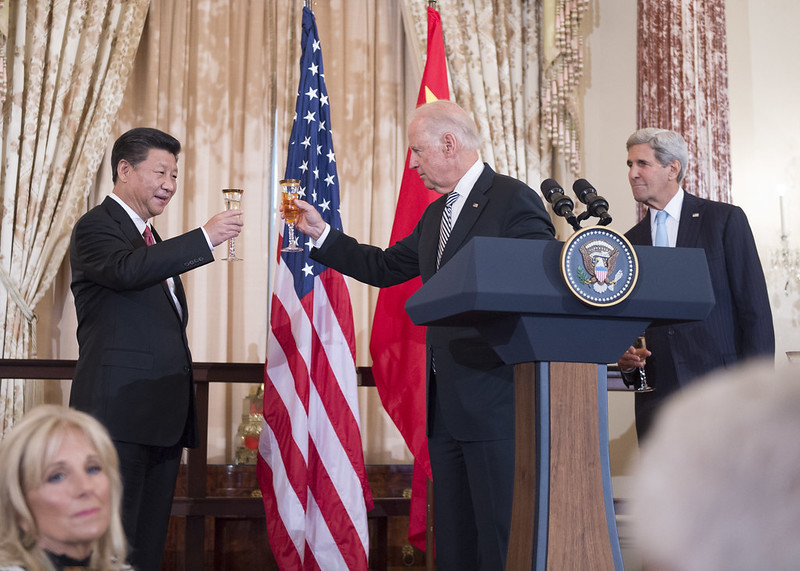
Biden's United States of America has no intentions of limiting China's economical and political aggressions, according to the U.S. Secretary of State.
Right before the Group of Seven or G7 summit of foreign ministers took place on Monday, U.S. Secretary of State Antony Blinken announced in a news conference with the U.K. Foreign Secretary Dominic Raab that the United States, under President Joe Biden's leadership, has no plans of meeting and limiting China's aggressions in the global political stage.
"It is not our purpose to try to contain China or to hold China down," the U.S. Secretary of State said on Monday before the first live meeting of G7 foreign ministers since 2019, Reuters reported.
Instead, Blinken said that the west is "trying to do is to uphold the international, rules-based order that our countries have invested so much in over so many decades to the benefit, I would argue, of not just our own citizens but of people around the world. Including, by the way, China."
Western countries are now recognizing that China's economic and military growth over the past 40 years is the "most significant geopolitical events of recent times" next to fall of the Soviet Union in 1991 that concluded the Cold War. Br
itain is already campaigning G7 partners to remain cautious against "China's economic influence and Russian malign activity" that threaten to undermine the power of the partnerships of the seven countries, including Canada, France, Germany, Italy, Japan, the United Kingdom and the United States.
"The UK's presidency of the G7 is an opportunity to bring together open, democratic societies and demonstrate unity at a time when it is much needed to tackle shared challenges and rising threats," Raab declared.
Despite the U.S.' disinterest in "containing" or "holding down" China, Blinken did give a stern warning to "any country, China or otherwise" that threatens to "challenge or undermine or seek to erode that rules-based order and not make good on the commitments that they've made to that order, we will stand up and defend the order."
According to WND, President Biden's approach to China, which was to create a healthy "global competition" with the communist state, is a stark contrast to former President Donald Trump, who saw the CCP as a "revisionist power seeking to upend the international order" that requires to be met with a more forceful power from the United States.
In response to China's growing aggression, Former President Trump's National Security Strategy in December 2017 reported that there is a need to reevaluate the policies of the last 20 years as it had banked on the assumption that engaging with global rivals will result in them remaining to be "benign actors and trustworthy partners."
Foreign Policy predicts that President Biden will fail in his mission to create "global competition with China" despite his plan to invest over $2 trillion in creating a more robust U.S. infrastructure. The reason behind this is China's economic structure and financing mechanisms vary greatly from that of the U.S.
From the very beginning, President Biden's tax proposals have already been met with criticism. It will be an uphill battle to get the ball rolling and build faster to catch up with China. For now, the U.S. will have to contain or hold down China and ensure its aggressions are within manageable levels.


































